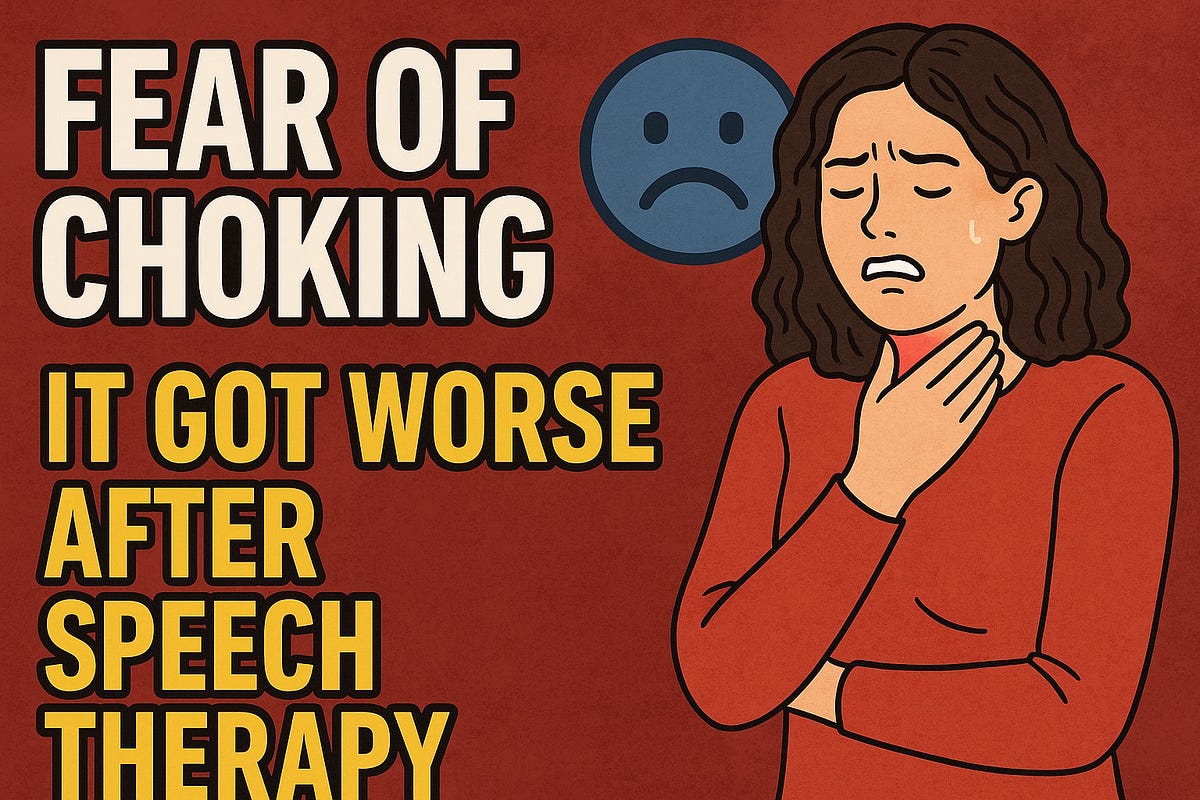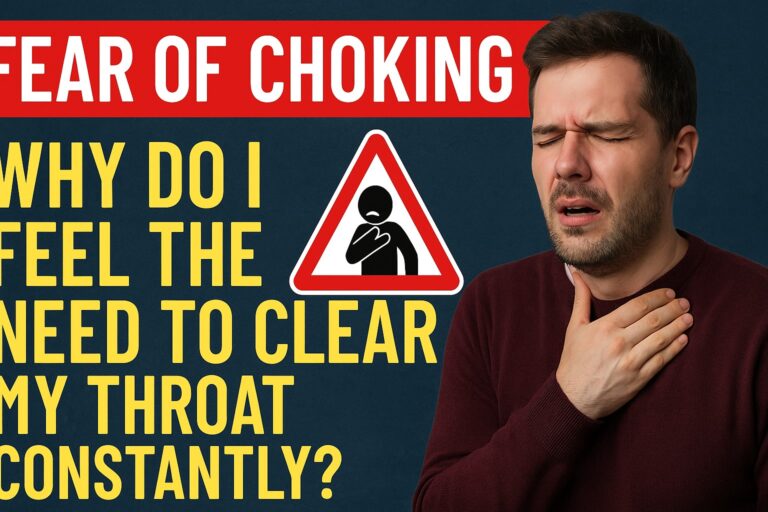Book Appointment Now
Why Speech Therapy Might Not Work for Everyone With Fear of Choking

Today, I’m going to explore a really important and often overlooked perspective — something someone shared with me recently: “I went for speech therapy, and my fear of choking actually got worse.”
Let’s unpack this together.
How Speech Therapy Helps (and When It Does)
Speech therapy can be incredibly helpful for some people. It works with the vocal cords and focuses on loosening the throat muscles. For those whose fear of choking stems from physical tension in the throat, these techniques can be relieving.
By loosening the throat muscles, the food passes through more easily. And with that, the mind may interpret that it’s now safe to swallow — because the tightness (a common trigger for fear) is reduced.
But… what if your throat muscles were never the problem?
Why It Might Not Work (and Can Even Backfire)
Here’s where it gets tricky.
Sometimes, when therapy only addresses the symptom — in this case, the throat tightness — without touching the root cause, it can backfire.
If your real issue isn’t in your muscles, but in your mind, then focusing solely on physical exercises won’t help — and may actually make you feel more helpless. You went in hoping it would work, and it didn’t. That disappointment fuels more fear. And fear breeds fear.
You begin to spiral: “Nothing is working. I must be broken.”
This builds frustration and hopelessness. And nothing fuels anxiety like the frustration of trying solutions that don’t get to the real problem.
It’s Not Just a Physical Problem — It’s a Subconscious One
If you’ve gone to multiple speech therapy sessions and still feel stuck, it’s not because speech therapy is useless. It’s likely because your fear is rooted deeper than just the act of swallowing.
You may be dealing with a psychological fear that developed as a survival strategy.
Maybe you experienced emotional abuse. Maybe someone made you feel unsafe during meals. Maybe a single choking incident got encoded in your mind as life-threatening.
Now, every time you eat, your mind triggers that old survival script — even though you’re physically fine.
Why the Mind Resists Change
Here’s something we often forget: the unconscious mind doesn’t like change. Even if a strategy no longer serves you, it still clings to it because, at some point in the past, it did serve a purpose.
Trying to “fix” the symptom (e.g., tighten or loosen throat muscles) without addressing the original fear is like telling your mind, “Let me take you into an unsafe place.” The mind resists. It fights back.
That’s why healing isn’t about forcing change. It’s about understanding the origin of your fear and telling your mind:
“Hey, this strategy helped me before, but it’s no longer needed. I’m safe now.”
So What Should You Do?
This isn’t about dismissing speech therapy. It works beautifully — for the right cases.
But if you’re someone whose fear stems from deeper, psychological roots, then your path to healing requires more than just physical techniques. It requires working with the subconscious mind and gently rewiring those outdated survival responses.
That’s where lasting change happens.
Let me know your thoughts or share what you’ve tried so far that didn’t work. I’d love to help you see it from a different angle.
Until next time — take care of yourself. You’re not broken. You’re just stuck in a loop your mind once created to protect you.







